
MACONDO
A HOMELAND FOR WRITERS
Macondo Writers Workshop Guest Faculty in 2025
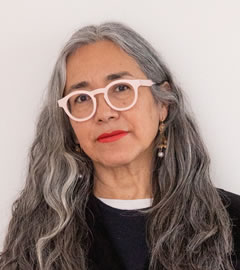
MULTI-GENRE: Cristina Rivera Garza
Jardines Planetarios Bajo Los Rayos Políticos Del Sol / Planetary Gardens Under The Political Light Of The Sun: A Molecular Workshop on Description, Sentence-Making, and Tone
During our workshop-seminar we will explore the intricate relationship between writing and plants, situating them within the context of our increasingly threatened solar system. Through in-depth readings of both theoretical and creative works, we will delve into the process of crafting descriptions, sentences, and tone while also (hopefully) engaging in the tending of our own planetary garden in the areas surrounding our position on earth.
The “plantness” of plants poses unique challenges to our writing, especially when some of them are errant beings forging gardens many would describe as invasive. In addition to reading together and out loud, we will engage in situ writing exercises of varying lengths directly connected to dates outlined in our syllabus and in alignment to the development of our planetary garden. Following each writing exercise, we will come together for conversations about the process and the writing that emerges from them. We will devote three sessions to formal workshop writings specifically focusing on description, sentence-making, and tone, which will require you to write creative writing exercises in advance of dates in the syllabus.
Letras Latinas is a collaborator and sponsor of the Multi-Genre workshop.
Suggested Readings
- Gilles Clement, Manifiesto del Tercer Paisaje
- Gabriela de Mola y Gabriela Alfaro, “Bustos and Galay: Ánima,” El sonido de las plantas
- Oxana Timofeeva, Solar Politics
- Carolyn F. Strauss, ed., Slow Spatial Reader. Chronicles of Radical Affection
- Claudia Peña Claros, Los árboles, and Antes, en cualquier parte
- Danielle Dutton, Prairie, Dresses, Art, Other
- Mafe Moscoso, La Santita
- Eduardo Sangarcía, Anna Thalberg
- Selva Almada, No es un río
- Mauro Javier Cárdenas, American Abductions
- Kate Zambreno and Sofia Samatar, Tone
Except for La santita, by Mafe Moscoso, all these books are available in English.
Feel free to read these books in Spanish, when available.
Click for Cristina's bio
Cristina Rivera Garza is the award-winning author of The Taiga Syndrome and The Iliac Crest, among many other books. Her memoir Liliana’s Invincible Summer won the Pulitzer Prize and was a finalist for the National Book Award. A recipient of the MacArthur Fellowship and the Sor Juana Inés de la Cruz Prize, Rivera Garza is the M. D. Anderson Distinguished Professor in Hispanic Studies, and director of the Ph.D. program in creative writing in Spanish at the University of Houston.
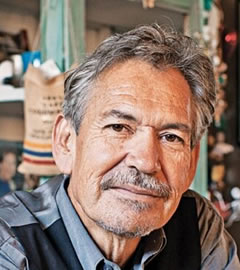
Fiction: Benjamin Alire Sáenz
Writing Comes from The Writer: Nowhere to Hide. Why Who You Are Matters So Much in the Fiction You Write
This is a generative workshop whose focus will be on writing honestly in the most profound understanding of that word. In this workshop we are going to listen to what we are doing. We must be vulnerable on the page with intent. I don’t believe that writing that is emotionally anorexic is compelling. At the other extreme, writing that suffers from emotional exhibitionism is dull and self-centered. Writing must be emotionally true and a writer has to learn to be vulnerable. Writing isn’t about exhibiting our intelligence—it’s about sharing our humanity with the reader. Which means that our writing expresses our emotional intelligence and our compassion. What makes a writer a writer. Certainly knowing your craft is a must. But merely knowing the elements of a story won’t make anyone a writer. What makes a writer a writer is her ability to deeply connect with herself and to deeply connect with others. A writer who lacks compassion for other human beings will never write anything that matters. There is always a riot in the heart. We are all fighting our own private wars. It is the work of the writer to know himself and embrace his own weaknesses and failings. A writer is able to speak of human flaws because he understands his own flaws. If a writer is a healer, then she is a wounded healer. In our writing we must abandon all fear and go to the place of the pain. To communicate that in ones writing is what makes a writer a writer. You must not only listen to the rhythm of the human heart but you must also listen to the rhythms of the language you are writing in. You must be careful and disciplined and be spontaneous all at once. If you are truly alive, then your writing will be truly alive as well.
Click for Benjamin's bio
Benjamin Alire Sáenz is an award-winning American poet, novelist and writer of children’s books. He was born at Old Picacho, New Mexico, the fourth of seven children, and was raised on a small farm near Mesilla, New Mexico. He graduated from Las Cruces High School in 1972. That fall, he entered St. Thomas Seminary in Denver, Colorado where he received a B.A. degree in Humanities and Philosophy in 1977. He studied Theology at the University of Louvain in Leuven, Belgium from 1977 to 1981. He was a priest for a few years in El Paso, Texas before leaving the order.
In 1985, he returned to school, and studied English and Creative Writing at the University of Texas at El Paso where he earned an M.A. degree in Creative Writing. He then spent a year at the University of Iowa as a PhD student in American Literature. A year later, he was awarded a Wallace E. Stegner fellowship. While at Stanford University under the guidance of Denise Levertov, he completed his first book of poems, Calendar of Dust, which won an American Book Award in 1992. He entered the Ph.D. program at Stanford and continued his studies for two more years. Before completing his Ph.D., he moved back to the border and began teaching at the University of Texas at El Paso in the bilingual MFA program.
His first novel, Carry Me Like Water was a saga that brought together the Victorian novel and the Latin American tradition of magic realism and received much critical attention.
In The Book of What Remains (Copper Canyon Press, 2010), his fifth book of poems, he writes to the core truth of life’s ever-shifting memories. Set along the Mexican border, the contrast between the desert’s austere beauty and the brutality of border politics mirrors humanity’s capacity for both generosity and cruelty.
In 2005, he curated a show of photographs by Julian Cardona.
He lives and works in El Paso, Texas.
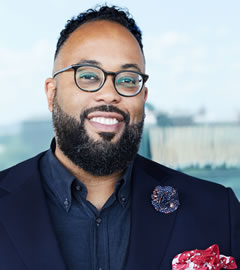
Poetry: Kevin Young
Deep Song
In this in-depth workshop, through looking at your book- or chapbook-length manuscripts and series, we will delve into the aspects of what makes a book sing, from cohesion to connection, variety to clarity. We will discuss large-scale aspects of craft, with a focus on the jazz-like process of improvisation and revision. Workshop participants will emerge with a fresh sense of their work’s deep structures and future possibilities.
Click for Kevin's bio
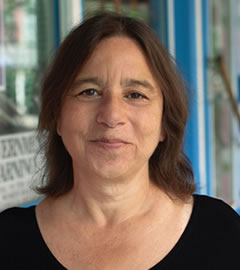
Nonfiction: Sarah Schulman
From Expression to Communication
Starting a new piece is creating raw material, in the way that a potter makes their clay. By renewing our experiences of craft, we can transform those impulses and expressive bursts into something that will be meaningful to the reader. And throughout, we will be in collective conversation about what it means to grapple with content that matters, while engaging form that comes organically from the emotions at the core of the piece.
Click for Sarah's bio
Sarah Schulman is a novelist, playwright, screenwriter, nonfiction writer, and AIDS historian. Her 21 books include the novels The Cosmopolitans, Maggie Terry, Rat Bohemia, Shimmer, After Delores and the nonfiction books Gentrification of the Mind, Conflict is Not Abuse, Israel/Palestine and the Queer International, Let The Record Show: A Political History of ACT UP, New York 1987-1993 and forthcoming in 2025, The Fantasy and Necessity of Solidarity. Her honors include a Guggenheim in Playwriting, a Fulbright in Judaic Studies, Lambda Literary Book Award, Lifetime Achievement Awards from The Publishing Triangle and The City University of New York Kessler Prize for Contribution to LGBT Studies. Her work has appeared in the New Yorker, New York Magazine, Harpers, The Atlantic, The New Republic, The Nation, The New York Times, the Guardian of London and more. Sarah holds an endowed chair in Creative Writing at Northwestern University and is on the Advisory Board of Jewish Voice for Peace.
What is the Macondo Writers Workshop?
The Macondo Writers Workshop is an association of socially-engaged writers working to advance creativity, foster generosity, and serve the community. Founded in 1995 by poet and writer Sandra Cisneros and named after the town in Gabriel García Marquez’s One Hundred Years of Solitude, the workshop gathers writers from all genres who work on geographic, cultural, economic, gender, and spiritual borders. An essential aspect of the Macondo Workshop is a global sense of community; participants recognize their place as writers in our society and the world. We are also experienced writers who demonstrate a professional or master’s level of writing. Qualified applicants must meet both criteria. Excellent writing does not excuse poor community spirit; vice-versa, an impressive record of community involvement does not excuse poor writing. Macondo is a gift we give to one another, with willing hands and open hearts.
Macondo Writers Workshop is a weeklong experience for professional writers that is made up of daily workshops with guest faculty, optional afternoon seminars, and evening public readings. We normally hold the workshop annually the last week of July in San Antonio, Texas.
In your first year as a new member, you must participate in a workshop. However, if you return to the Macondo Writers Workshop in the future, you have the option of coming as either a workshop participant or as a Chuparosa (hummingbird), a designation for Macondistas who choose to come and work independently during the workshop time, but who participate in seminars, readings, and within the wider community activities during our week together. Returning Macondistas do not have to reapply to come back again, but they do need to submit an application for the workshop they would like to join, or sign up as a Chuparosa.
When you apply for the workshop, whether you are new or returning Macondista, you select the workshop that you would like to join. We offer workshops across different genres (fiction, poetry, non-fiction, etc.) and each year we invite different distinguished guest faculty. Some past faculty have included: the Poet Ai, Joy Harjo, Julia Alvarez, Helena María Viramontes, Marjorie Agosín, Ruth Behar, Leslie Marmon Silko, Richard Blanco, Sandra Cisneros, John Phillip Santos, Dorothy Allison, Sherwin Bitusi, Luis Rodríguez, Joy Castro, Manuel Muñoz, and others. Acceptance to workshops is based on availability, with workshops generally limited to ten participants.
Past Faculty
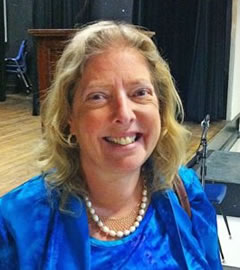
Marjorie Agosín
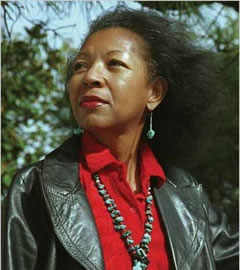
The Poet Ai
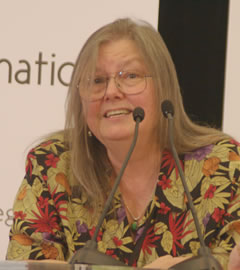
Dorothy Allison
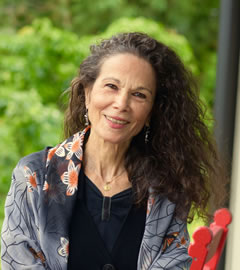
Julia Alvarez
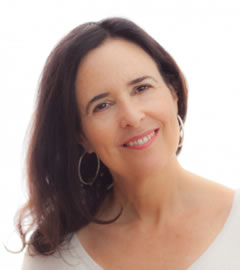
Ruth Behar
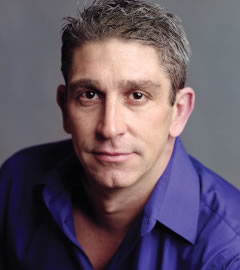
Richard Blanco
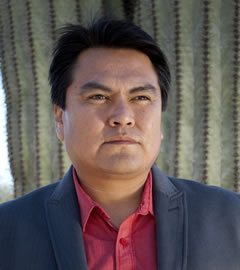
Sherwin Bitusi
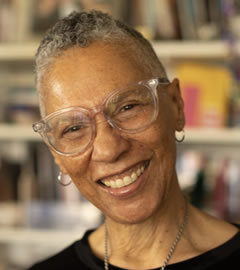
Sharon Bridgforth
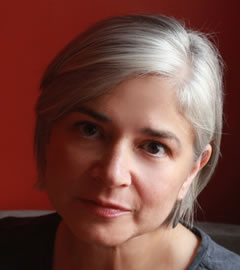
Joy Castro
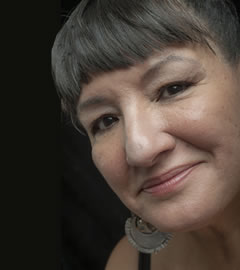
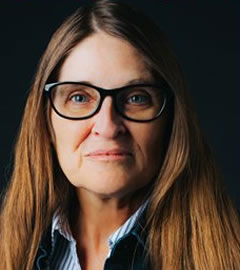
Allison Adelle Hedge Coke
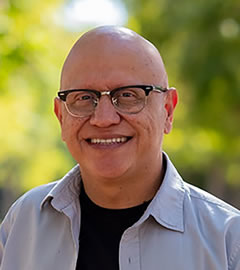
Alex Espinoza
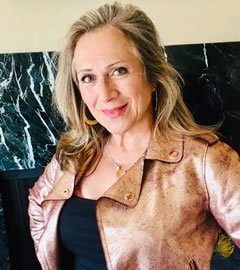
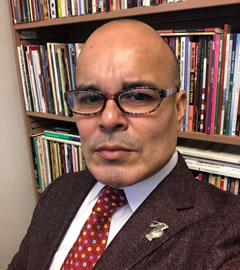
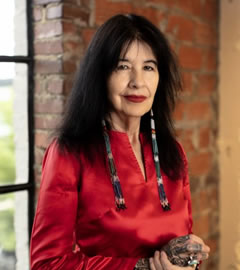
Joy Harjo
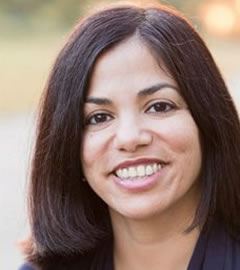
Daisy Hernández
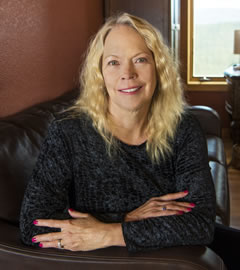
Kristen Iversen
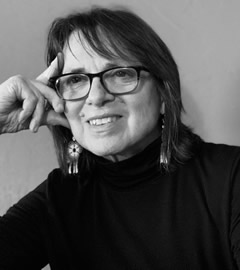
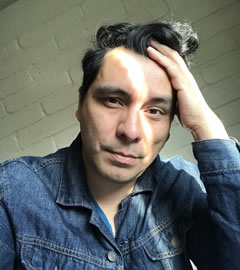
Manuel Muñoz
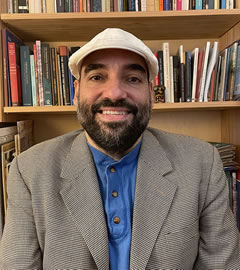
Urayoán Noel
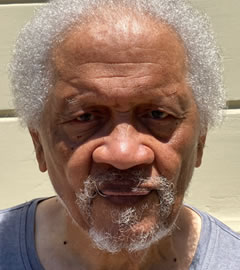
Ishmael Reed
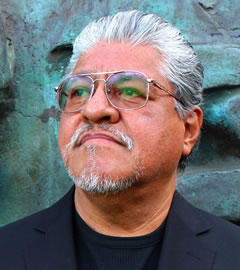
Luis Rodríguez
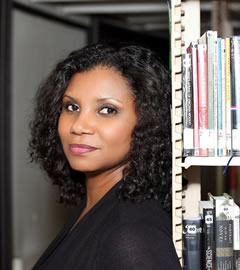
Nelly Rosairo
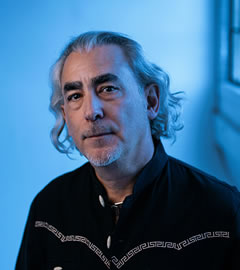
John Phillip Santos
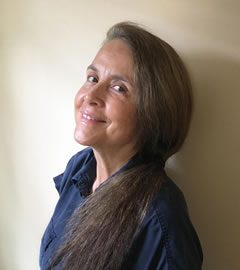
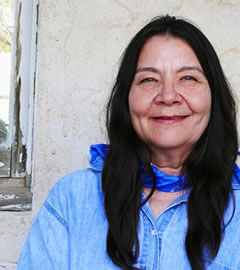
Leslie Marmon Silko
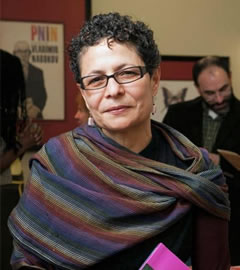
Helena María Viramontes
What does the workshop experience look like?
The workshops are either generative workshops or reading/response workshops. In reading/response workshops, all the participants and faculty read and comment on the manuscripts (usually 10-20 pages) of all their workshop cohort ahead of Macondo. During the workshop week, participants meet every afternoon for three hours and give feedback to two writers in the workshop each day. These morning sessions are confidential and it is mandatory that all participants attend and participate fully. Generative workshops do not require submission of manuscripts. The writing and sharing of writing happens within the workshop week.
As a participant you agree to abide by the Compassionate Code of Conduct, a charter our members have developed to make this workshop experience different. You can expect critical insight and critique, but this is made within a kind, generous, and generative community. Many lasting friendships, collaborations, and projects have grown out of this space. Our mission, then, is to help each other create community, assist others as activist writers, and to continually grow to be better, more empathic, compassionate individuals.
Who can apply?
You! We are a group of experienced writers who demonstrate a professional or master’s level of writing. The workshop gathers writers from all genres who work on geographic, cultural, economic, gender, and spiritual borders. Qualified applicants must meet both high writing standards and dedicated community involvement. It is a highly competitive process and you must be willing and able to offer rigorous, helpful critiques. Excellent writing does not excuse poor community spirit; vice-versa, an impressive record of community involvement does not excuse poor writing. Please review the application for additional details. Each year we accept no more than ten new Macondistas. It is a highly competitive process, and writers who do not get accepted are welcome to reapply again in the future. We add a small cohort each year to make sure that we have the resources and space to accommodate their participation and experience. Once you have been accepted you can apply to return to future workshops. At this time we do not have formal requirements for members. We strongly encourage active engagement. Stay in touch with Macondo, share accomplishments and publications, give back regularly, and volunteer to help!
How do you apply?
Workshop applications/registration for the 2025 workshop will be open until February 23, 2025 PST. All essential information is detailed in the application form. Click here to download the application. Click here to pay the $35 application and processing fee. If you have problems accessing the application or making payment, please email macondoapplication@gmail.com.
How are applications assessed?
The reading panels, one for each genre, are comprised of a rotating, volunteer panel of Macondistas. The applications are anonymized and judged on strength of essay and writing samples based on the criteria described in the application. Acceptance is based on availability, with workshops generally limited to ten participants.
What are this year’s deadlines?
The application deadline is February 23, 2025 (11:59 pm PST). Participants must submit both their application form and process their non-refundable application and processing fee by the deadline. Accepted participants will be notified no later than and announced no later than March 31, 2025.
When is the Macondo Writers Workshop held?
The Macondo Writers Workshop will be held in-person at Trinity University in San Antonio, Texas. This year will be our 30th Anniversary of the workshop. It will begin with a Welcome Dinner on Monday evening, July 21, 2025 and concludes on Sunday morning July 27,2025. An early arrival option is available for an additional cost.
Can I defer my acceptance?
Because of the logistical difficulties involved, at this time we do not allow accepted participants to defer their admission. If they are unable to attend the year that they are admitted, they must reapply to join again in the future.
How much does it cost?
We aim to keep workshop costs as low as possible to maximize participation.
Here are the costs for 2025:
- $830 for Workshop Classes
- $350 for Chuparosas, independent project work (option only for returning Macondistas)
- $667 for Single Occupancy Room and Board (Includes: single occupancy room (with shared bathroom), breakfast & lunch, linens and facilities
- Early Sunday Arrival can be added for an additional $35
- $270 Commuter pass required for participants staying off campus
- Participants are responsible for covering the cost of their own transportation, dinners and incidentals.
Are there scholarships or financial assistance available?
There are no waivers to cover the $35 workshop application and processing fee. A limited amount of partial and full scholarships will be available to accepted participants to attend the workshop, with preference for first-time Macondistas. This amount varies based on the amount of donations that come in and distributed in a way that allows for maximum participation.
Are there ways that I can participate if I’m not a member, or learn more about Macondo Writers Workshop before applying?
Yes! Our workshop week always includes free readings that are open to the public. We also periodically hold events, readings, and fundraisers throughout the year. You can meet us at the Association of Writers and Writing Programs (AWP) in Los Angeles, California, March 26-29, 2025 (Exhibit Booth 1027) or attend our Macondo AWP Off-Site Reading on March 27, 2025 at 7 p.m. sponsored by LA Plaza de Cultura y Artes. Check back to our homepage, or follow us on Instagram @Macondowriters or Facebook at Macondo Writers Workshop for event updates.
Payment Portal
Click here for instructions on how to pay the application fee.
All website content © Copyright 2024 Macondo Writers | Privacy Policy